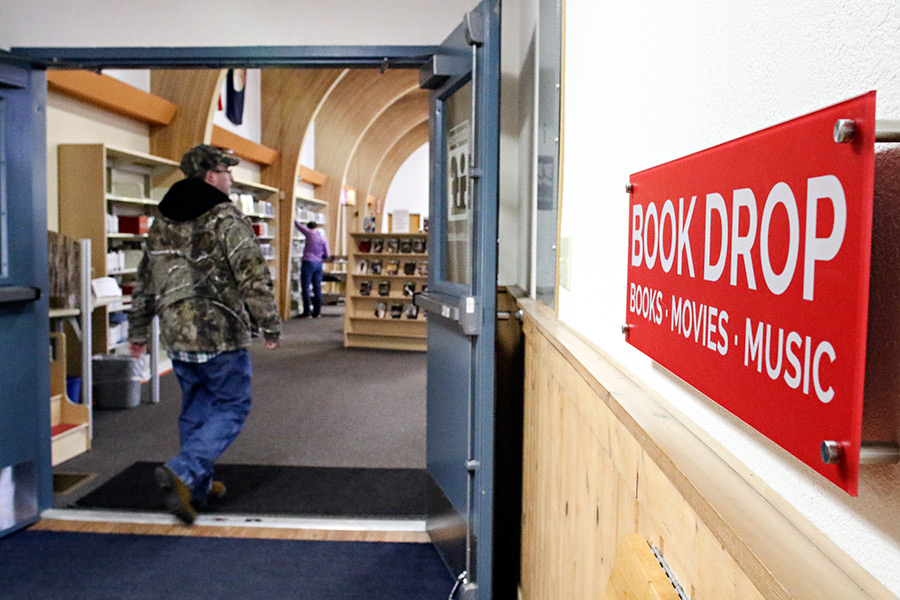More than 50 people packed into the Flathead County Commissioners’ chambers on June 26, many to voice their disagreement with the commission’s May decision to remove all ImagineIF Library projects from the county’s Capital Improvement Plan (CIP).
The commission had planned for 15 minutes of public comment that morning, but ended up hearing a half hour of testimony about the library system and how it impacts lives. In the end, the commission voted 3-0 to move forward without library projects in the CIP.
“I love our libraries, and our libraries are the basis of our democracy,” said Jordonna Dorhees of Bigfork.
“Everyone belongs at the library,” said Kalispell resident Cherilyn DeVries.
Public support for the county’s libraries ratcheted up after a May memo from the county commission said when it comes to the libraries, the county is not interested in owning any buildings and will not fund any such project in the future.
The county will still pay for the libraries’ operating costs through its budget, but the commissioners removed all library projects from its Capital Improvement Plan, a five-year planning tool created by the county to identify the future timing of capital needs, estimated capital costs, and funding sources.
Flathead County does not own its library facilities, making it the exception among the top eight largest counties in Montana. It leases each building for the library branches. In Kalispell, School District 5 owns the library building, the city of Columbia Falls owns the building for that branch, and the Bigfork branch is working out of a donated space.
With expansions needed, the ImagineIF Library Foundation purchased a $500,000 building and began raising funds for the $1.6 million needed to turn it into a Bigfork library branch. The plan then was to gift the building to the county, but the commission said in its May memo that it doesn’t want ownership of facilities whatsoever.
That capital campaign in Bigfork will continue, according to Behe, and the library foundation could end up owning the building as a contingency plan.
Other library projects that were removed from the CIP included a $1.5 million potential land purchase in Kalispell and $17 million for the new library, and $4.4 million for a Columbia Falls library.
“The Library Foundation or Library Board may choose to purchase real estate and construct library facilities with funds they are able to generate,” the commission wrote in its May memo.
Owning the buildings gives the libraries control over their own futures, Behe said, because even though the relationships with the building owners are solid, there’s no guarantee they’ll last forever.
Kim Morisaki, the director of business development at Montana West Economic Development, told the commission that the library is seen as a desirable anchor tenant for the redevelopment of the Kalispell Core Area, especially on the forthcoming walking path cutting through downtown.
“The real possibilities are that there are investors looking to do some fairly large-scale projects all along the trail in the next couple of years,” Morisaki said after the hearing. “And I don’t want to see us ever limiting ourselves.”
She presented the commission with a letter from one such developer, Molly McCabe, who said the commission’s “abrupt change in policy … causes us to take a step back and reconsider. Uncertainty adds risk to any project. I encourage you to take a step back and identify ways to allow for creative ideas, financial options and structures to come into play.”
Morisaki echoed McCabe’s statement about the county keeping its options open.
“Nobody is advocating that the county start buying buildings, but just don’t limit the option of being given things,” she said.
The ImagineIF Library Board met later on June 26 to draft a response to the commissioners’ May memo, and talk about next steps, especially where the Bigfork project is concerned.
“They really do want to figure a way through all of this that includes all of us working together,” Behe said of the board. “We know that we all have to work together. We’re going to find a way o work through what’s going on right now.”
